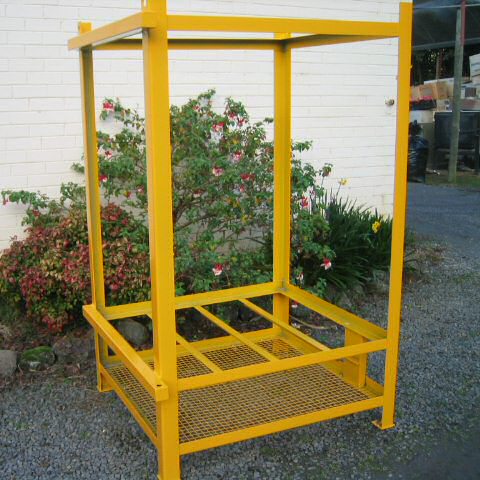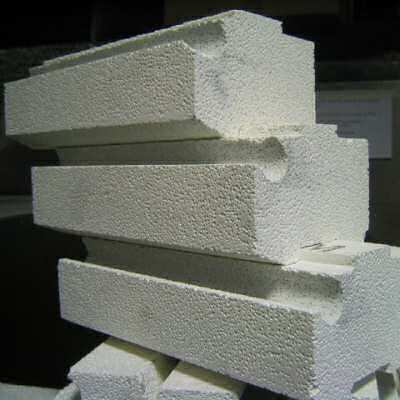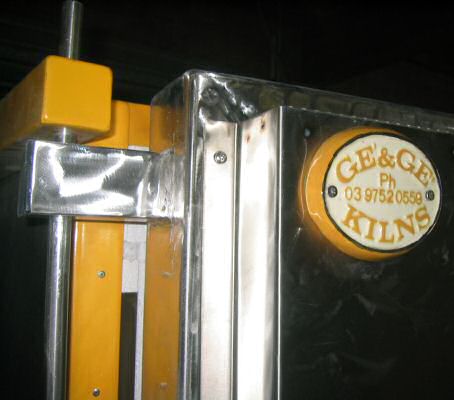GE Kilns have many years of experience in the manufacture of kilns, furnaces and ovens. We specialise in the building of quality handmade Potters & Glass Kilns to customer requirements.
All of our kilns are now manufactured using stainless steel throughout. We start with a strong stainless steel frame to support the kiln. It is powder coated in our distinctive golden yellow and supports a stainless steel inner frame or box, which in turn houses the brick or fibre lining, or a combination of both.

GE Kilns feature our exclusive interlocking brick system for reducing wear and damage to your kiln from use or transport. This allows the insulation to expand and contract during firing, greatly reducing the problem of brick splitting which occurs with glued bricks.

The door or lid of the kiln is all stainless steel, including the hinge system, because stainless steel is much more resistant to corrosion in kilns.

The heavy-duty industrial elements for heating the kiln are either grooved into the brick courses, or installed onto an exposed element tube support system, designed by GE Kilns. Heating elements are also built into the floor to promote even heat distribution.
All kilns with a capacity of 100 litres or greater are fitted with overtemperature controllers as standard.
We use automatic controllers for the firing of our kilns and we will teach you to use these units. We also have written instructions available. The control systems use solid state relays to provide quiet, efficient and reliable operation.
Longevity of the kilns is subject to how the equipment is handled by the customer. Although the inside materials are very delicate. With careful, normal handling, the kiln will give you many years of good, dependable service.
In order to prolong the life of the kiln, it is essential to keep the kiln clean inside and outside.
Inside the kiln is a small white tube; this is the temperature sensor or thermocouple, and is vital for the firing of the kiln. It is very delicate and all care must be taken not to knock or break it.
It is advisable to always have a shelf on the bottom of the kiln as a support for the tier system used. This will spread the load of the kiln shelves and help to prevent the brickwork breaking up from the weight stacked inside.
Operating temperature for ceramic kilns is a maximum of 1300°C. For glass kilns it is 1000°C.
Contact GE Kilns when making your choice of kiln and speak to Gerry for further helpful information and guidance.
GE Kilns are manufactured to Australian Standards AS/NZS 3820:1998
